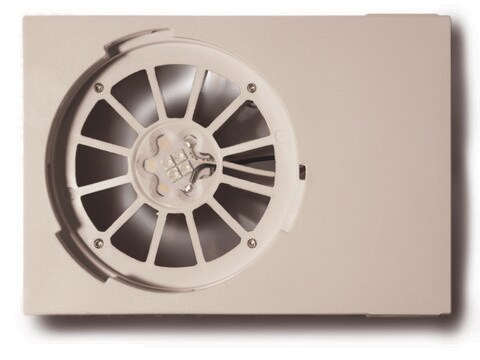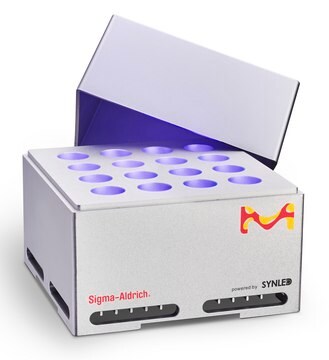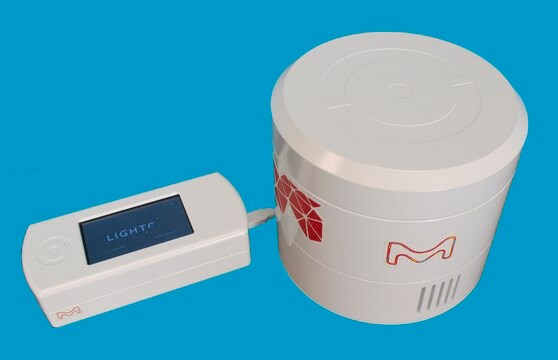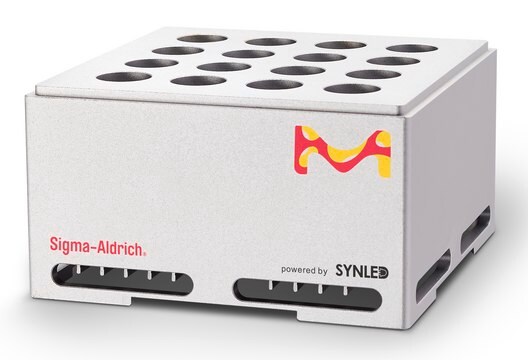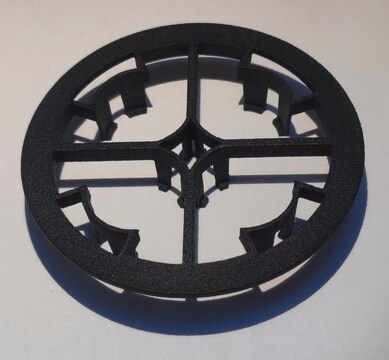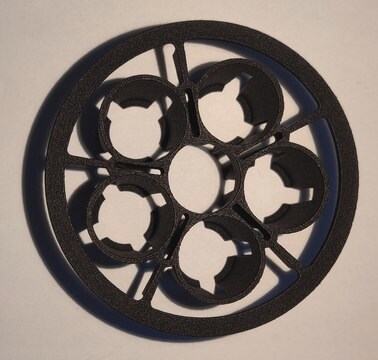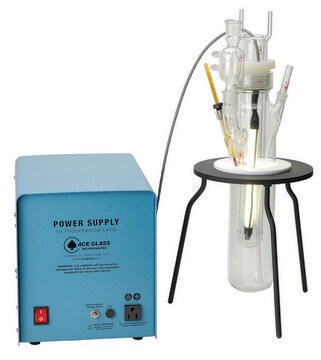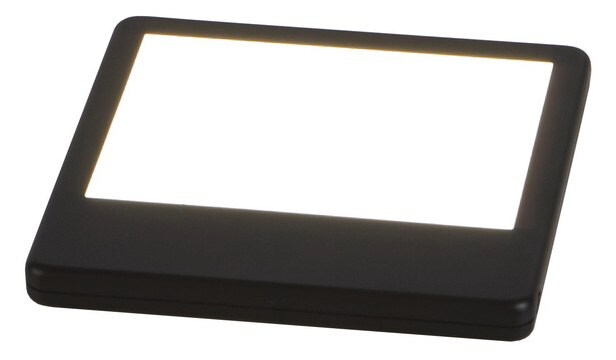Z744035
Penn PhD Photoreactor M2
Synonym(s):
photoreactor
About This Item
Recommended Products
AC/DC input
100 - 240 V AC, 50/60 Hz
feature
thermocouple type K-Type Thermocouple
(Touch Screen: 3.5” TFT LCD; 320 x 480 resolution)
reaction suitability
reaction type: Photocatalysis
reagent type: catalyst
parameter
(Variable stir bar control 100 - 2000 RPM)
0-95% RH at 10-40 °C
W × H × D
11.4 cm × 27.2 cm × 27.9 cm
4.5 in. × 10.7 in. × 11.0 in.
shipped in
ambient
General description
Features and Benefits
- Modular design allows for use with a variety of wavelengths: 450 nm (included), 420 nm (sold separately), 395 nm (sold separately) and 365 nm (sold separately)
- 360 degree reflective environment maximizes surface area photon capture
- Light shield interlock prevents user exposure to harmful light rays
- Interactive touch screen controls reaction parameters
- Intertek ETL, CE, and CB approved
- User defined parameters including temperature, light intensity, fan speed and stirring
- Auto stop, pause and reset options
- Supports vial sizes gc, 4, 8, 20, 40 ml
- Multi-vial holders are available to allow four 8 mL vials and five 4 mL vials reactions to be run in parallel.
- Temp feedback using a k-type thermocouple
- Z744035-1EA-US: type B
- Z744035-1EA- IN: type D
- Z744035-1EA-EU-E: type E
- Z744035-1EA-EU-F: type F
- Z744035-1EA-UK: type G
- Z744035-1EA-CN: type I
- Z744035-1EA-CH: type J
Photocatalysis Technology Spotlight
related product
Choose from one of the most recent versions:
Certificates of Analysis (COA)
Sorry, we don't have COAs for this product available online at this time.
If you need assistance, please contact Customer Support.
Already Own This Product?
Find documentation for the products that you have recently purchased in the Document Library.
Customers Also Viewed
Articles
Photoredox catalysis is a powerful synthetic methodology to form challenging covalent bonds using light irradiation. It is effective for light-driven polymer and small molecule synthesis.
Csp2- and Csp-hybridized coupling reactions are established catalytic approaches. However, multi-step Csp3- and Csp2-coupling reactions of boronic acids and related derivatives are still limited by ineffective two-electron transmetalation reactions.
The application of radical chemistry towards organic synthesis is well-developed and wide-reaching, though often hampered by a dependence on toxic radical initiators.
While Markovnikov alkene reactivity is very well developed and utilized commonly in the synthesis of commodity and research chemicals, catalytic access to the anti-Markovnikov-selective adducts is a much less-developed endeavor.
Our team of scientists has experience in all areas of research including Life Science, Material Science, Chemical Synthesis, Chromatography, Analytical and many others.
Contact Technical Service
